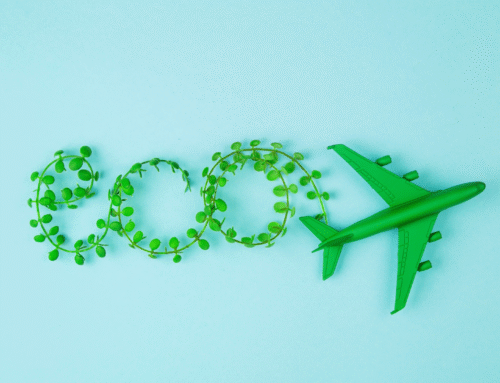If you are like most people, you probably feel like flying on a commercial airliner is uncomfortable, dull, and frustrating. You miss your flight, they get you off the plane 15 minutes early, and you get stuck with a sore behind. What if you could change all of that and fly on a private jet? Would you do it?
Whether you’re traveling to a business meeting or planning a luxury vacation, flying a private plane is a luxurious, time-saving option. Not only is it convenient, but it also offers many perks for passengers. It is more common than you think. Each passenger typically has access to all seats on the plane, which allows for flexibility and privacy. They also tend to have comfortable seating, full catering, and ample legroom. Having access to such a plane doesn’t have to be restricted to celebrities, billionaires, and other wealthy people. In fact, many everyday people also fly private planes. And the good news? The cost of flying private is proving to be more affordable than ever.
Here Are the Benefits
Save Valuable Time
There are many instances when a private jet may be a better option than a scheduled flight. However, purely from a practical standpoint, an efficient trip on a private jet isn’t about looking good-it’s about being on time. When you fly on a private jet, your time is your own. You don’t have to worry about airport traffic or long security lines, and you don’t have layovers to stop and charge your phone or grab a snack. The benefit, however, is that it typically takes less time to fly by private jet than it would fly commercial.
Stress-Free Traveling
Flying is stressful enough, which helps when you have the right amenities. Consider booking a private jet for your next trip, and you’ll enjoy the benefits of relaxing in luxury while jetting to your destination.
Improved Work Efficiency
A private jet can offer executives additional flexibility, such as leaving when they want to, arriving when they want, and traveling to multiple locations in a single day. These added amenities help executives maximize their time, which improves their productivity. Executives who fly on a private jet can book a hotel near their office or leave the airport in the evening and return when traffic is lighter.
Privacy
If you’re the kind of person who can’t stand being crammed into a seat on an airplane for 12+ hours, you’ll definitely want to invest in your own private plane. When flying, you’ll enjoy more space, less hassle, and total control over your route. Not only will you get to spend more time in your destination, but it will save you money, too.
Convenience & Flexibility
Private jets are faster, more convenient, and more flexible than commercial planes, making air travel even more enjoyable. If you are a frequent traveler, you can also opt for jet card memberships from companies like BlackJet, which allow you to book flights instantly and ensure a safe travel experience. From light jets for short trips to large cabin jets for longer journeys, these memberships enable you to book jets according to your needs.
Access to More Airports
The private jet industry is growing. It’s no longer only about serving the rich elite but is becoming more accessible than ever. From the on-demand apps to fractional ownership programs, more people are flying private than ever before. One of their benefits is access to some of the smaller airports.
Even Your Pets are a VIP
Flying private is a luxurious option that few people ever consider. When they do, it’s often just for the prestige and prestige, just like your crew, but they can have a lot of other perks that appeal to you, too. One of these perks is the ability to bring along your pet. While we can’t accommodate pets on all flights, we can certainly keep the pet happy, fed, and comfortable.
While flying commercial is faster, cheaper, and more convenient, traveling on a private jet is an experience that cannot be matched by a commercial airline. It is ideal for corporate executives and celebrities, but there are also good reasons why you would choose a private jet over a commercial flight. Private Jets for less shows you the benefits they can offer, and we promise you won’t be disappointed.
Can Individuals Buy a Private Aircraft?
Yes, individuals can indeed buy private aircraft, and it’s a dream that many aviation enthusiasts and high-net-worth individuals aspire to fulfill. Owning a private aircraft offers unparalleled convenience, flexibility, and luxury in travel, allowing owners to bypass the hassles and limitations of commercial aviation. However, purchasing and owning a private aircraft is a significant investment that goes beyond the initial acquisition cost. Let’s delve into the details of buying a private aircraft and the maintenance considerations associated with ownership.
Acquiring a private aircraft typically involves substantial financial outlay, as prices can range from hundreds of thousands to millions of dollars, depending on the type, size, age, and condition of the aircraft. Buyers have a wide range of options to choose from, including single-engine piston aircraft, turboprops, jets, helicopters, and even luxury private jets equipped with lavish amenities.
The process of buying a private aircraft involves extensive research, careful evaluation of options, negotiations with sellers or dealers, and potentially engaging aviation experts or consultants to ensure a smooth transaction. Buyers must consider factors such as the intended use of the aircraft, seating capacity, range, performance capabilities, maintenance history, and operating costs before making a decision.
Once a suitable aircraft is identified and purchased, the responsibilities of ownership extend beyond the initial acquisition. Maintenance is a critical aspect of aircraft ownership, ensuring the safety, airworthiness, and longevity of the aircraft. It often encompasses compliance with regulatory requirements set forth by aviation authorities such as the Federal Aviation Administration (FAA) in the United States.
Aside from this, aircraft maintenance in Alberta and other locations also involves a combination of in-house maintenance performed by qualified mechanics, as well as outsourcing certain tasks to authorized maintenance facilities. Routine maintenance tasks include engine inspections, avionics checks, structural inspections, lubrication, and system checks to ensure all components are functioning correctly and in compliance with safety standards.
In addition to routine maintenance, private aircraft owners must adhere to scheduled maintenance intervals specified by the aircraft manufacturer or regulatory authorities. These intervals typically include periodic inspections, component replacements, and system overhauls to maintain the aircraft’s airworthiness and performance.
Owners must also budget for unexpected maintenance expenses, as unforeseen issues or component failures may arise during the aircraft’s operational lifespan. Having a contingency fund set aside for maintenance emergencies can help mitigate financial risks associated with unexpected repair costs.
In summary, while owning a private aircraft offers unparalleled freedom and luxury in travel, it also entails significant financial investment and ongoing maintenance responsibilities. By carefully considering these, individuals can make informed decisions about purchasing and owning a private aircraft.





